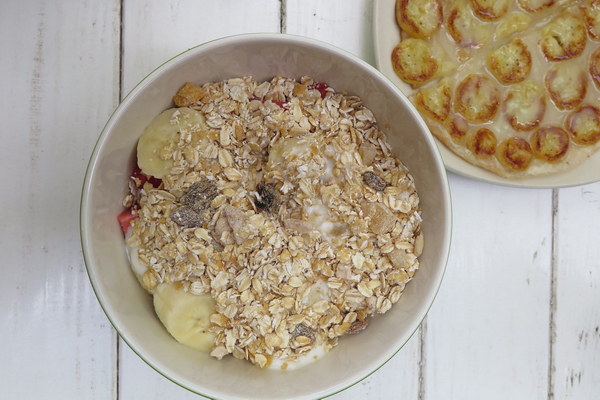Cultivating a Strong Spleen for Baby Fish A Comprehensive Guide to Proper Care
Introduction:
Raising baby fish requires meticulous attention to their health and well-being. One of the most crucial aspects of their care is ensuring they have a strong spleen, as it plays a vital role in their immune system and overall development. This article will provide a comprehensive guide on how to nurture a robust spleen in baby fish, including dietary considerations, environmental factors, and preventive measures.
I. Understanding the Spleen's Role in Baby Fish Health
The spleen is an organ that plays a crucial role in the immune system of fish. It is responsible for filtering blood, removing old blood cells, and storing platelets. A healthy spleen helps in the production of white blood cells, which are essential for fighting infections and maintaining overall health.
II. Dietary Considerations for a Strong Spleen
1. Balanced Diet:
Feeding baby fish a balanced diet is crucial for a strong spleen. Include a variety of foods such as high-quality flake food, frozen or live foods, and plant-based options like spirulina or algae wafers. This diversity ensures they receive the necessary nutrients for optimal growth and immune function.

2. Proper Feeding Schedule:
Follow a regular feeding schedule, offering small, frequent meals rather than overfeeding. Overfeeding can lead to digestive issues and weaken the spleen. Ensure each feeding provides only what the fish can consume within a few minutes.
3. Avoiding Harmful Ingredients:
Be cautious about the ingredients in commercial fish food. Some foods may contain preservatives or artificial additives that can harm the spleen. Opt for high-quality, natural fish food with minimal processing.
III. Environmental Factors for a Strong Spleen
1. Water Quality:
Maintaining good water quality is crucial for a strong spleen in baby fish. Regularly test the water for ammonia, nitrite, and nitrate levels, and perform water changes as needed to keep these parameters within safe limits.
2. Temperature and pH:
Optimal water temperature and pH levels contribute to a healthy spleen. Aim for a temperature range of 70-75°F (21-24°C) and a pH level between 6.5 and 7.5, as these conditions promote overall well-being and immune system function.
3. Adequate Space and Flow:
Provide sufficient space for baby fish to swim and exercise, as physical activity enhances their immune response. Ensure the tank has adequate water flow, which helps distribute oxygen and remove waste products.
IV. Preventive Measures for a Strong Spleen
1. Regular Health Checks:
Perform regular health checks on your baby fish to detect any signs of illness early. This can include observing their behavior, color, and eating habits. Early intervention can prevent the spleen from becoming compromised.
2. Quarantine New Fish:
Before introducing new fish to your tank, quarantine them for at least two weeks to prevent the spread of diseases. This practice helps maintain a healthy environment for all fish, including their spleens.
3. Stress Reduction:
Minimize stress factors in the tank, such as aggressive tank mates or sudden changes in water conditions. Stress can weaken the immune system and compromise the spleen's function.
Conclusion:
Raising baby fish with a strong spleen requires attention to their diet, environment, and overall health. By following the guidelines provided in this article, you can help ensure your baby fish grow up healthy and robust. Remember, a well-nourished and stress-free environment is the key to fostering a strong spleen and a thriving immune system in your beloved aquatic pets.









